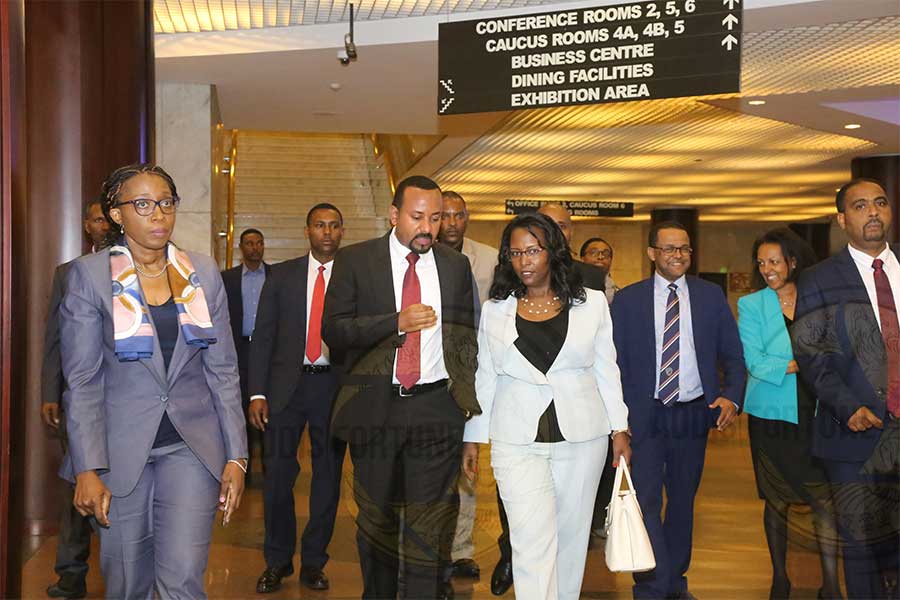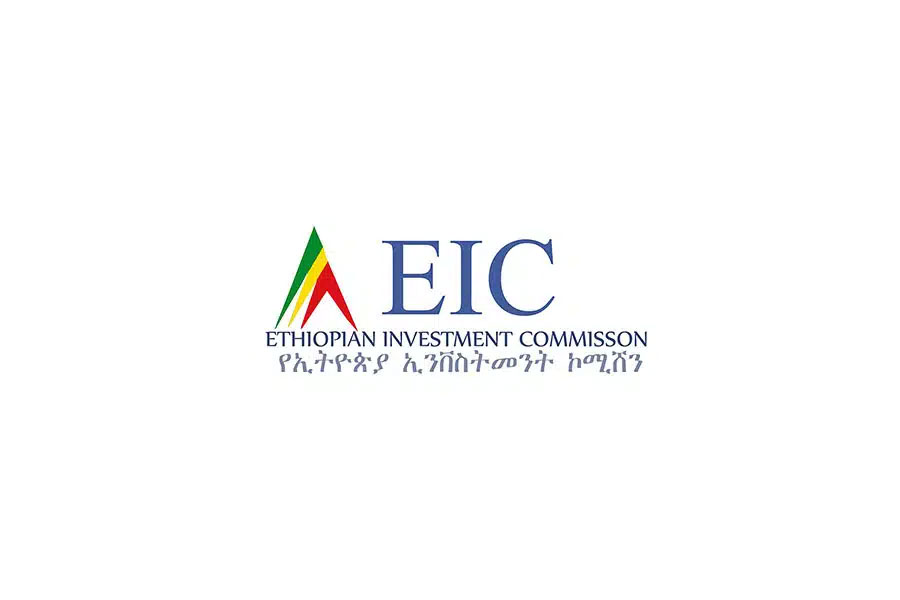
Radar | Oct 09,2021
Federal authorities are proceeding with a wage reform for the public service, a long-anticipated move to address economic hardships among public employees. According to officials familiar with the matter, a comprehensive study proposing a 91.4 billion Br (845.7 million dollars at last week's exchange rate) budget to increase salaries for over 2.4 million civil servants reached Prime Minister Abiy Ahmed's (PhD) Office earlier this month.
Led by Teferi Demeke, an advisor to the Finance minster, and Mekuria Haile, head of the Commission, the proposal incorporates 923 federal government officials and Members of Parliament, as well as personnel in regional and federal police forces, the armed forces, and the Information Network Security Agency (INSA).
Of the proposed budget, 71.8 billion Br is earmarked directly for public service employees, with the remaining funds designated for higher officials and members of the security sector. The wage adjustments are designed to vary by grade, offering the most substantial increases to the lowest-paid public service members. Those earning around 1,100 Br a month stand to gain the most, while employees with salaries up to 20,468 Br will see more modest raises ranging from 332.7pc to five percent, respectively.
According to Yigezu Jemaneh, head of work evaluation and payment research at the Civil Service Commission, the study incorporates factors such as GDP productivity, household consumption, and data from the Central Statistics Service's (CSS) household consumption and expenditure survey.
"We're waiting for approval," Yigezu told Fortune.
Finance Minister Ahmed Shide's recent letter to the Prime Minister's Office justified the wage adjustment on prevailing economic shocks due to inflation, exacerbated by wide-ranging policy reforms. Notably, the study was conducted two months before the liberalisation of the exchange rate regime in late July, but considerations were made for its potential effects, claim people close to the progress. An official from the Ministry of Finance confirmed the credibility of the study and its arrival at the Prime Minister's Office.
"It's a sensitive issue," he said.
He disclosed that Minister Ahmed is expected to brief Prime Minister Abiy's cabinet on the new developments soon.
Senior Ministry officials have been uneasy since part of the study and the accompanying letter were leaked on social media platforms before approval by the Council of Ministers. A source disclosed that investigations involving the Information Network Security Agency (INSA) are underway to determine the source of the leak.
"If the leak is from the Ministry, proper administrative measures will be taken," an official said, adding that they believe the leak originated outside the Ministry.
The wage reform comes on the heels of Ethiopian authorities securing a half-billion long-term loan from the World Bank, part of a 1.5 billion dollar financial package from the International Development Association (IDA). Approved by Parliament less than two months ago, the Finance Minister stated that the loan would support social safety nets for vulnerable households, including the civil service.
However, many in the civil service, particularly those in mid-range salary brackets, express dissatisfaction with the anticipated increases.
"It doesn't mean a thing," said Mitiku Tadele, a 35-year-old lecturer at a public university who has served for 13 years.
Earning a monthly net income of 9,900 Br that goes entirely to pay for rent, Mitiku - along with his colleagues - is contemplating leaving the public service. He recalled a meeting with the Prime Minister two years ago, where they were asked for patience as a "major revolution" in wages was promised.
"It's very different from what we heard from the Prime Minister," he said, arguing that salary increments would be inadequate without addressing income tax rates. "It's all in vain."
Fikre Desalegn, president of the Civil Service University, echoed these sentiments. With 340 academicians earning an average salary of around 10,000 Br, the University has presented studies and requests concerning wage increases for the past two years.
"Although studies on wage increases have been presented, inflation has eroded their impact," Fikre told Fortune. "It'll be difficult to please the needs of civil servants."
Fikre called for a comprehensive study that considers the experiences of countries like Kenya and Nigeria. A study by the International Labour Organization (ILO) reveals that while nominal wages in Ethiopia have tripled over the past decade, real wage growth has only increased by 7.4pc due to soaring inflation. According to World Bank findings, 48pc of civil service employees in Ethiopia — about 1.1 million —earn less than 6,000 Br, placing them below the Bank's extreme poverty line. The study found that wage increases for public officials could reduce corruption in countries with low wage inequality.
However, in highly unequal systems, such increases may exacerbate corruption.
Last month, during an announcement of the wage adjustment, Prime Minister Abiy emphasised his administration's focus on shielding civil service workers from economic shocks, particularly inflation. Yet experts warn that Ethiopia's economic recovery could face prolonged headwinds amid high inflation, low labour productivity, and political instability.
"Wage increments alone will be challenging for them," said Assefa Belay (PhD), an economist who has researched wage inequalities.
He argued that salary increases are insufficient to address the civil service's economic difficulties. According to Assefa, the impact of reforming public employees' conditions needs to be carefully assesed in the current economic climate. With recent economic shocks and ongoing political instability, he advocates for reconsidering income taxes to lessen the financial burden on the government's coffers.
"Incentive packages and allowances, rather than simple wage adjustments, may offer more effective solutions," he told Fortune.
The Ministry of Finance appears to be cautiously watching over the unfolding of these issues. An official from the Ministry noted that while the study was conducted before the economic policy reforms, including the liberalisation of the exchange rate regime, it took into account potential impacts.
"We've to balance the needs of civil servants with the broader economic context," he said.
PUBLISHED ON
Sep 14,2024 [ VOL
25 , NO
1272]

Radar | Oct 09,2021

Fortune News | Sep 14,2019

Fortune News | Jul 20,2019

Radar | Jan 04,2020

Radar | Apr 03,2023

Radar | Jan 05,2020

Radar | Jun 21,2025

Viewpoints | Oct 11,2025

Advertorials | May 24,2024

Fortune News | Mar 07,2020

Dec 22 , 2024 . By TIZITA SHEWAFERAW
Charged with transforming colossal state-owned enterprises into modern and competitiv...

Aug 18 , 2024 . By AKSAH ITALO
Although predictable Yonas Zerihun's job in the ride-hailing service is not immune to...

Jul 28 , 2024 . By TIZITA SHEWAFERAW
Unhabitual, perhaps too many, Samuel Gebreyohannes, 38, used to occasionally enjoy a couple of beers at breakfast. However, he recently swit...

Jul 13 , 2024 . By AKSAH ITALO
Investors who rely on tractors, trucks, and field vehicles for commuting, transporting commodities, and f...

Oct 18 , 2025
The political establishment, notably the ruling party and its top brass, has become p...

Oct 11 , 2025
Ladislas Farago, a roving Associated Press (AP) correspondent, arrived in Ethiopia in...

Oct 4 , 2025
Eyob Tekalegn (PhD) had been in the Governor's chair for only weeks when, on Septembe...

Sep 27 , 2025
Four years into an experiment with “shock therapy” in education, the national moo...